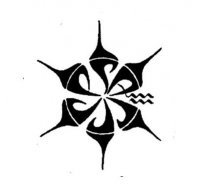Conference Theme: Standards Supporting Innovation in Biodiversity Research and Conservation
Standards for the description and exchange of biodiversity information help promote research, support decision-making for conservation and planning, and provide a means of communicating observations by both professional and citizen scientists across taxa and political boundaries. TDWG standards are an integral foundation of the largest biodiversity information sources, but given the wealth and diversity of information collected for plants, animals, and fossils, the need remains to extend and refine the concepts required to achieve greater integration for the discovery of knowledge and its use in biodiversity conservation.
This year, TDWG is focusing its annual meeting not only on supporting research, decision making, and communication of biodiversity information, but also on how standards can support innovative research. Scientific innovations often "stand on the shoulders of giants," but they can also be disruptive -- causing major changes in the way that science works. To what extent do our standards promote innovation, and does the most innovative research show us where our standards need to be refined and extended? Current research both in Computer Science (e.g., deep learning, computer vision, ambient computing) and Biodiversity Sciences offers excellent opportunities for multidisciplinary innovative synergies among researchers, decision makers, students, and citizen scientists.
